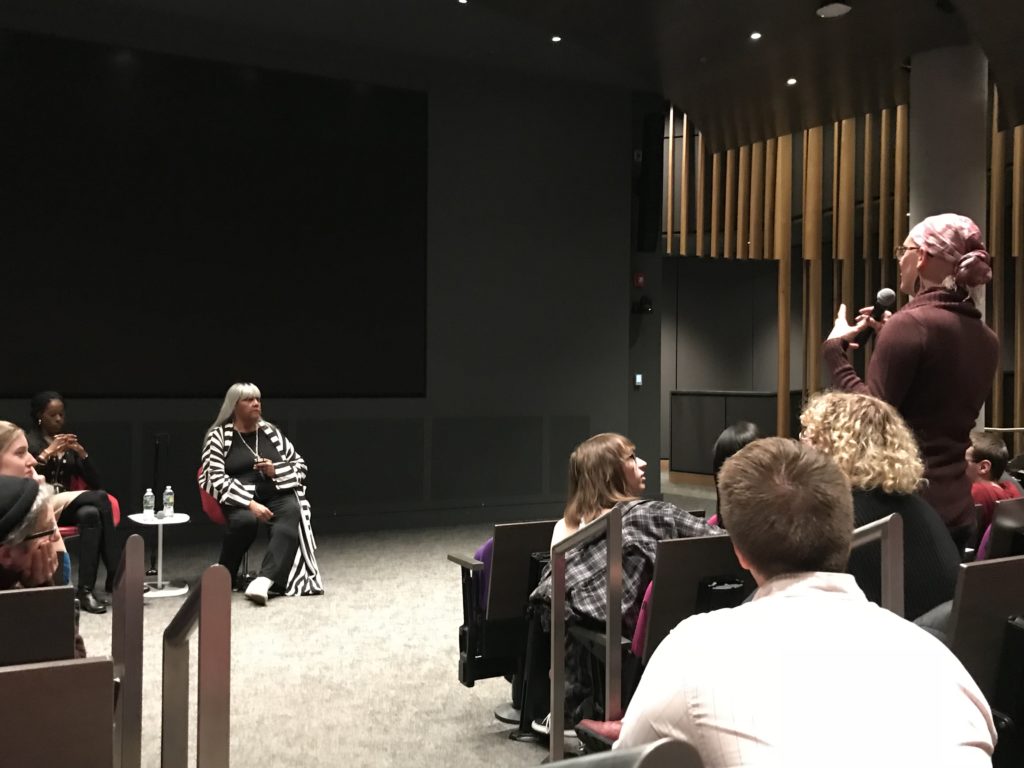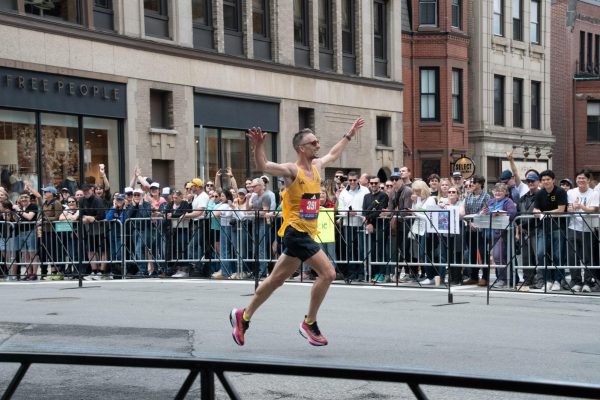Stonewall activist speaks at Northeastern
April 11, 2018
Transgender activists cannot succeed on their own, said transgender activist and Stonewall Rebellion leader Miss Major Griffin-Gracy, who called for large-scale coalition to advance transgender rights during a talk April 2 at the Interdisciplinary Science and Engineering Complex auditorium.
The event, sponsored by the Northeastern LGBTQA Resource Center and NU Pride, was a conversation between Major and local transgender activist Chastity Bowick.
Major, a black transgender woman, said she has faced immense discrimination during her life. The most significant mistreatment she said she experienced was in in the years prior to the civil rights and gay liberation movements of the 1960s and ‘70s. She advised the audience to stand up against oppressors.
“You have to rely on the strength that you have within yourself to realize that you are where you need to be,” Major, 77, said. “You deserve and have the right to be there, regardless of what some [expletive] has to say about who you are and why you’re there. Stand up for your own [expletive] rights.”
Major, who grew up in the 1940s, said her parents never accepted her gender identity.
“My parents died still calling me ‘boy’ and still trying to explain to people, ‘That’s my son,’” she said.
Although Major’s recent work centers on transgender women of color, she spoke about the need for solidarity between people of all marginalized identities. Joining forces with other groups is the best way to advance transgender rights, she said.
“In order to get things to change, we have to pull in other boats. We can’t do a million-man march. There’s not a million of us because we’re so special and unique,” Major said with a laugh. “But we can get people who are supportive of us to come with us to create a movement of a million people.”
Major reflected on the fact that very few transgender women live beyond middle age because they are at higher risk for suicide and violence. She said she hopes her activism will help increase the average life expectancy of this population.
Many people in the audience, like fourth-year marine biology major Grace McKenna, appreciated this rare opportunity to hear from an activist of an earlier generation.
“Queer histories aren’t talked about and queer elders aren’t honored in spaces enough,” McKenna said.
Sasha Costanza-Chock, a media professor at the Massachusetts Institute of Technology, said she appreciated Major’s colloquial delivery.
“Miss Major, although she denies it, is a legend of trans activism and black trans activism,” said Costanza-Chock. “It’s amazing to hear her talk in such frank, real language and terms about what needs to happen for trans folks to survive.”
To event attendee Milan Casimir, Major’s larger-than-life persona surpassed what she had hoped for.
“She over-exceeded [my expectations],” said Casimir, a 34-year-old fashion designer. “I expected all the feistiness. I expected all the realness, the truth, the love and compassion. It was a little bit of a roller coaster, but a good roller coaster.”


















